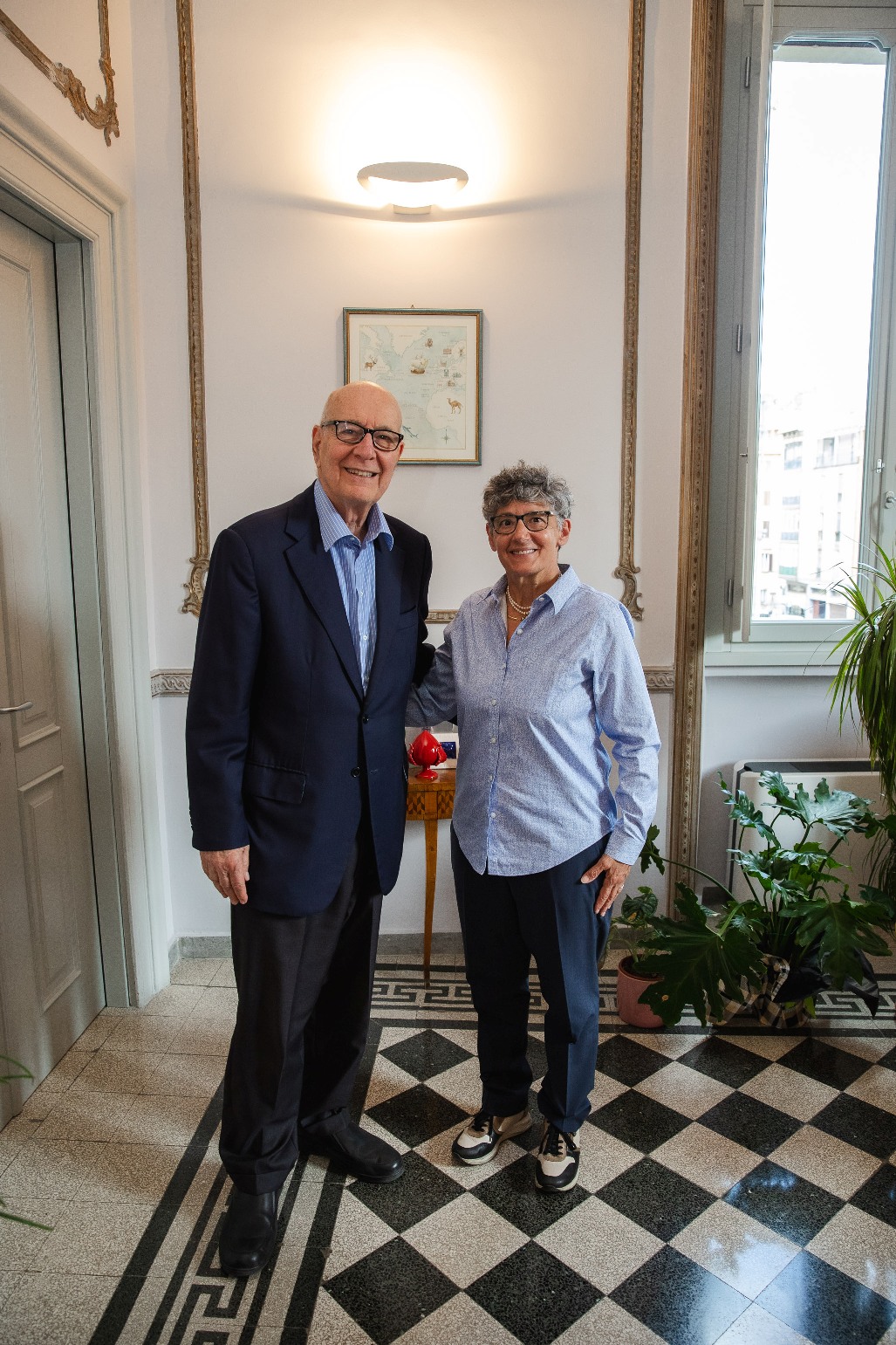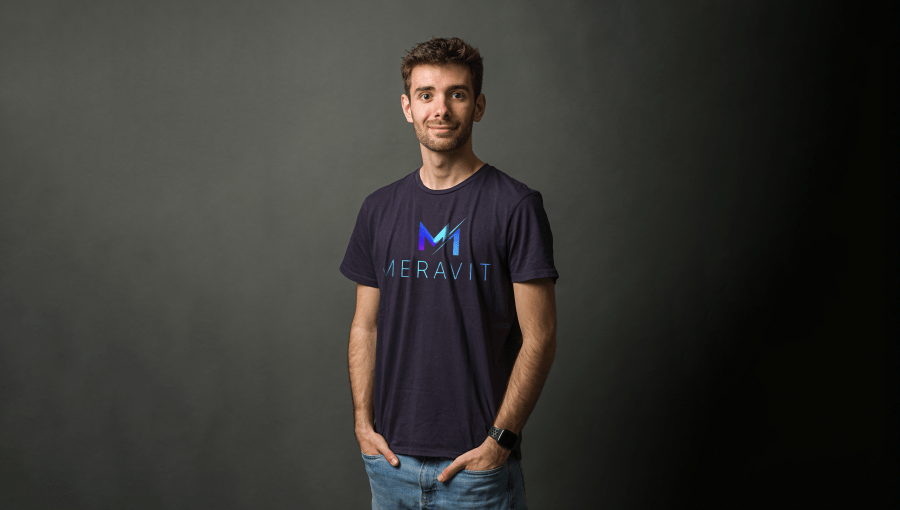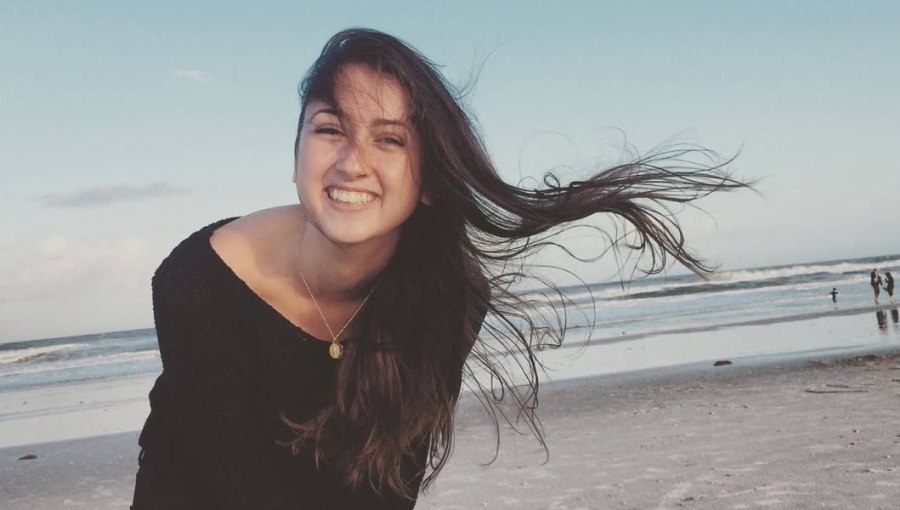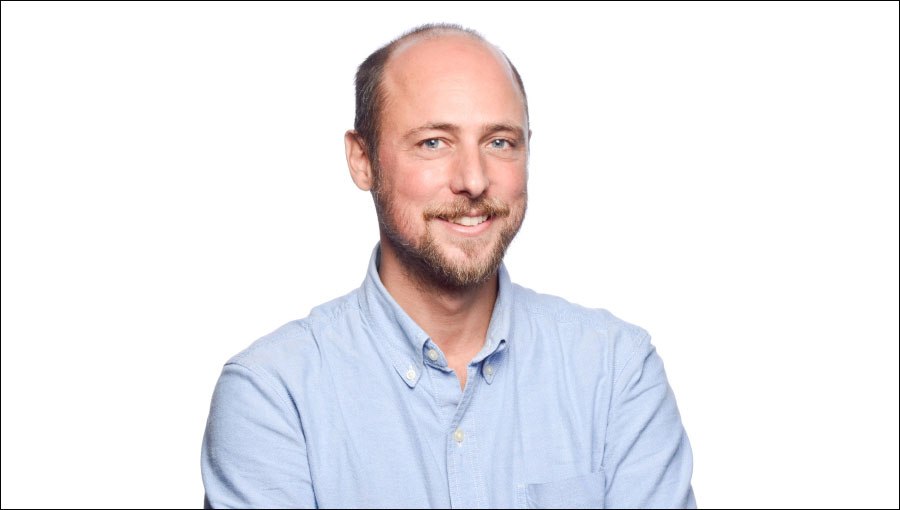Meet Alumna Andrea Falconieri, Daughter of JCU’s First President
Currently from Denver, Colorado, alumna Andrea Falconieri is the daughter of JCU’s first President, John V. Falconieri. Falconieri was President from 1972 to 1976. Andrea attended John Cabot from 1974 to 1976, when it was still a two-year liberal arts program known as John Cabot International College.
Andrea was recently interviewed by JCU’s Director of Web Communications, Berenice Cocciolillo.
Tell us about your background.
When I was in high school, my father was working at SUNY State University New York, at Albany, and he was asked to coordinate the summer abroad programs. And so, we moved to Rome. When the programs ended, our family didn’t want to go back to the States. We loved the Rome experience, and we all just thrived here. Back in those days, we were very independent. Everybody had their own motorcycle, and it was a beautiful life. So my father quit his job at SUNY and went to work on creating John Cabot International College.

My two brothers went to John Cabot, and they were in the first class, with only 31 students. I followed them once I graduated from Marymount International School in Rome, in 1973. I attended John Cabot in the 1973-74 and 1974-75 academic years, when it was still very small, with about 40 or 50 students. After those two years, I had to go back to America to complete my degree. I went to a small college in St. Louis and then I went off to the University of Oregon to get my graduate degree in Math Education.
After I graduated from the University of Oregon I returned to Rome, which I considered home. The Italian company Olivetti was looking for bilingual mathematicians, and I thought “I could do that!” So, I got a job with Olivetti in Rome, in the early ages of computers. I worked there for two years, learning programming. It wasn’t really something that many women did at the time and there was a lot of sexism in those days. It was usually one woman to 30 guys, so I got pretty tough in that working world.
After two years, I went to work for Digital Equipment Corporation, where I specialized in software engineering and data architecture. I had a long career in IT but it was hard for a woman to have upward mobility career opportunities in those days. I grew really tired of battling for every promotion and raise. It was painful because I worked very hard and loved my work so much. So, 20 years later I decided it was time to move back to America and try there only to find it was pretty much the same.
What was the atmosphere like at John Cabot during those two years that you spent as a student?
To use the Italian word, strepitoso, which can be translated as “outstanding.” It was so cool. At the time, John Cabot was located in a villa owned by Pro-Deo, which later became LUISS University, near Via Nomentana, in the north of Rome. We loved hanging out in that villa and all the students considered it a home away from home. There was a kitchen, the library, a little lecture room, and a big living room where we all hung out.
There would be students in one room playing and working on music or singing, or just philosophizing. Then there’d be other guys off in the corner playing mental chess, without the chessboard. And the lectures were really exceptional. Once, my father put on La Dolce Vita (1960) and then gave a long lecture on all the intricacies of the film and how the seven sacraments are portrayed in it. And he knew Federico Fellini, the director of the film, who came to talk to us.
Tell us about your career after you went back to the states.
I got into the early developmental phases of data architecture and software design, and then, as new methodologies would come into play, I evolved with them and became quite experienced and known in the data architecture and data science field. By the time I retired, data science was the field to be in and even more so today. That was where I really emphasized my career. I would teach and train new employees, and often I was coupled with young IT graduates as their mentor. I led projects and helped the developers, but my favorite assignments were when I was given the systems engineer and data architect role.
About six or seven years ago, I retired from corporate America and consulted for small business for a few years. But now, since I have always loved music, I have fully immersed myself in it. I teach music theory, song arrangements, and ukulele in music schools around Denver. I play ukulele and piano in my band “The Hip Replacements” and perform mainly in senior living centers or by myself in Piano Bars.
What advice would you give to a student from the U.S. who’s considering studying at John Cabot?
I would sit them down, give them a cup of tea and say, this is the opportunity of a lifetime. You will never look back and say, I can’t believe I went and wasted one/two/three/four years in Italy. You will always say those were the best years of my life. The opportunity to live and study in a foreign country is priceless.
My father’s vision with John Cabot was to create an international college that would unite students from around the world and I am happy to see how this still holds true today at what JCU has become. This is one of the most beautiful features of the John Cabot University experience. You learn to interact with people from different cultures and different backgrounds. You set the foundation of a global generation. You learn how different people are, and that difference is invaluable, and it opens your mind to other thoughts and philosophies, and other types of experiences. It’s an excellent preparation for thriving in this global world.





